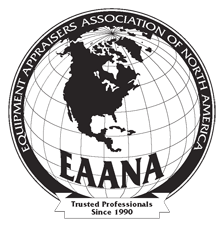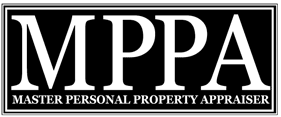You are herePurpose of Appraisals / For What's It's Worth!
For What's It's Worth!
By Dr. Noreen Dornenburg, Accredited Senior Appraiser, Avondale Appraisals, and Ronald J. (Jerry) Dover, Certified Senior Appraiser and President, Equipment Appraisers Association of North America (EAANA)
To a surety producer or underwriter, “What’s it worth?” is more than an academic question. Issuing performance bonds requires a rigorous review of the contractor’s character, capacity, and capital. Reliable and accurate information in the pre-qualification process is critical, and certified equipment appraisals are key to assessing accurately both the capacity of the contractor to complete the contract and the capital base upon which necessary funds will be raised. Yet too few surety companies require current, market-based equipment valuations.
Instead, the industry relies on two sometime dubious sources of information: (1) insurance inventories and (2) book values of equipment, either as depreciated, or using some rule-of-thumb percentage of original cost. Contractor-generated equipment lists can:
- (a) Be simply out-of-date;
- (b) Hide true value of assets because of accelerated depreciation schedules unrelated to the useful life of the equipment;
- (c) Be deliberately manipulated to deceive the surety company and/or the bank; or
- (d) Grossly overstate the value of currently held, but aging, assets in order to facilitate replacement in case of accident or loss (insurance lists).
An independent, professional appraiser will provide accurate and unbiased information on the actual equipment owned by the contractor with its current market value.
A professional equipment appraisal also gives the surety company access to more detailed and accurate information about the quality of the contractor’s assets. In the process of completing appraisal reports, certified equipment appraisers complete visual inspections to verify and identify the equipment, determine its age, usage, and condition, observe the contractor’s maintenance and repair capabilities, estimate useful life, and form an opinion of current market value. The appraisal report can be tailored to meet the specific needs of each surety company’s prequalification process.
Certified equipment appraisers have wide knowledge of equipment markets and considerable contacts within the construction equipment industry to draw upon when doing an appraisal. For those who have never engaged an equipment appraiser, professional associations of equipment appraisers can identify members who specialize in the specific type of fleets used by road-builders, heavy construction, and utility contractors.
In addition, certified equipment appraisers are governed by the Uniform Standards of Professional Appraisal Practice (USPAP) and are trained by their professional associations to comply with these widely accepted standards for appraisal assignments. Choose an appraisal company employing certified or accredited appraisers who specialize in the type of equipment and vehicle fleets owned by your contractor client. Make sure the appraiser complies with USPAP and the ethical code of his or her own professional appraisal association.
With a certified equipment appraisal, the surety industry can determine with confidence the appropriate level of performance bond to issue a contractor. Better information permits issuing more surety when deserved and withholding or limiting surety to contractors whose equipment fails the quality test.
To learn more about what a professional equipment appraiser can do for you and who are available in your area, visit the Web sites of the Equipment Appraisers Association of North America (http://www.eaana.org/), the Association of Machinery and Equipment Appraisers, (http://www.amea.org/), and the American Society of Appraisers (http://www.appraisers.org/).
Reliable, Timely Service


